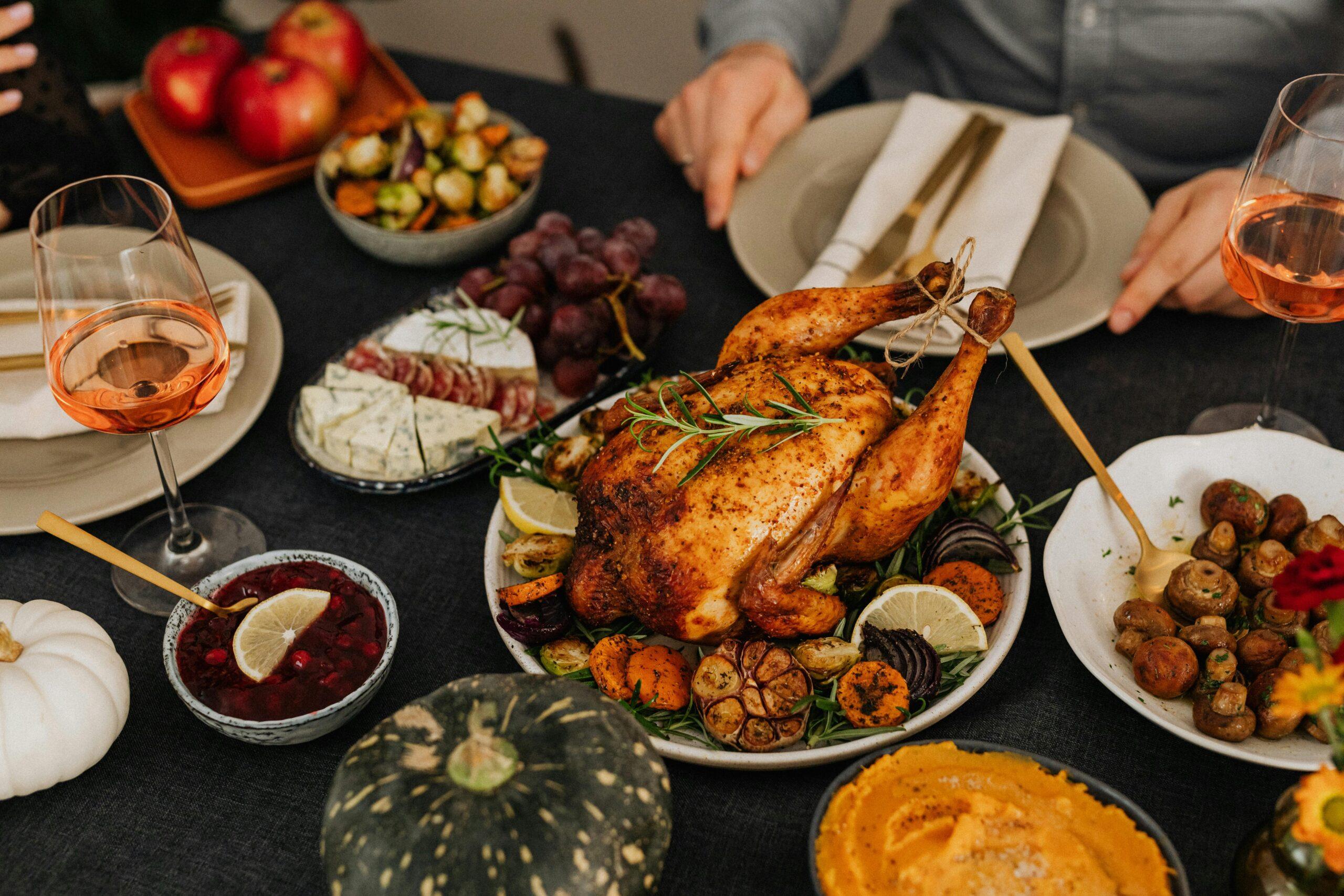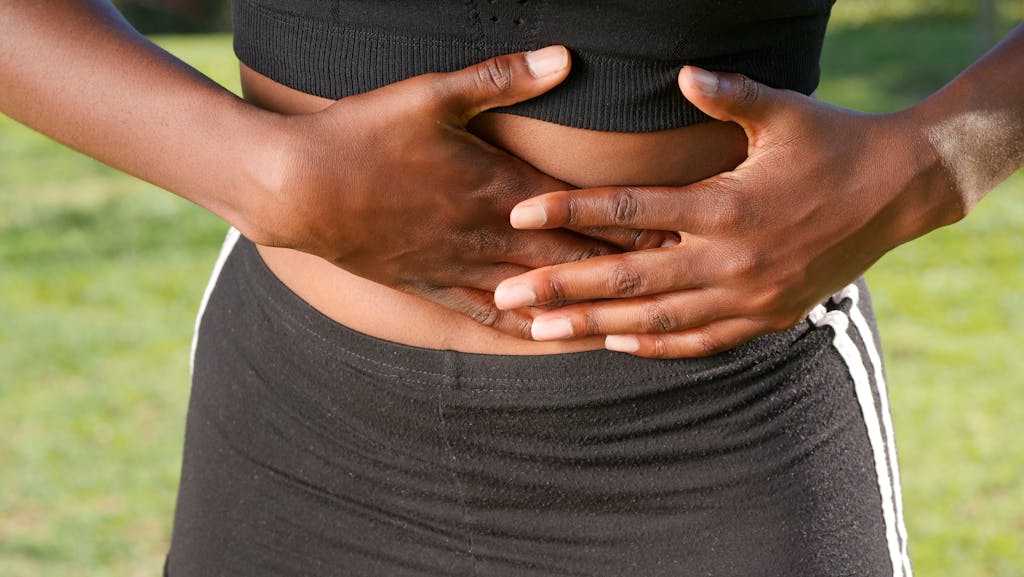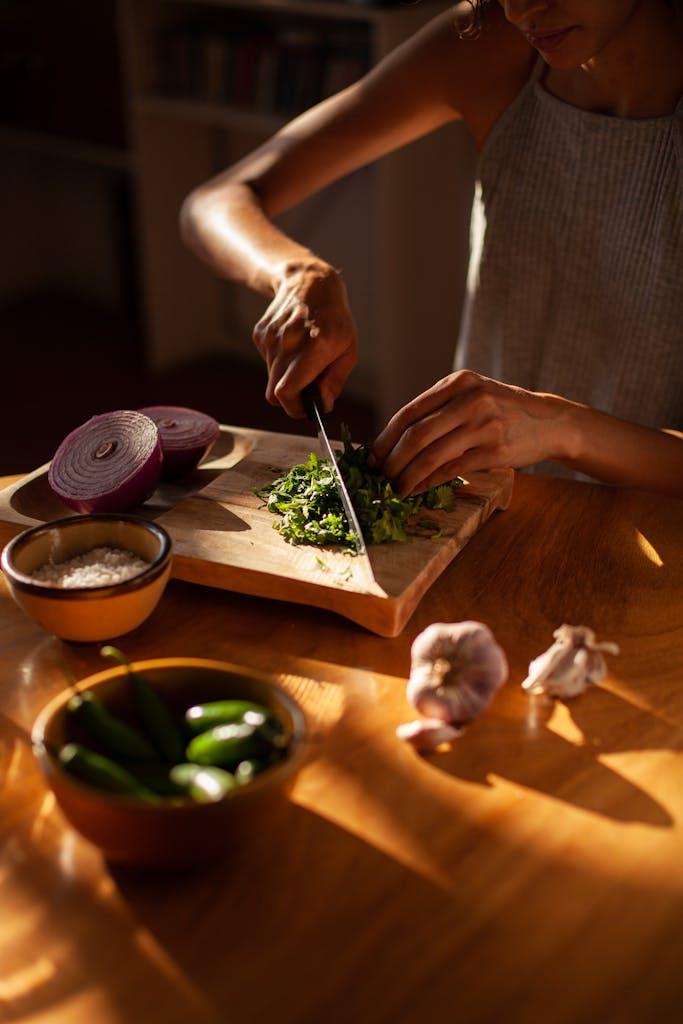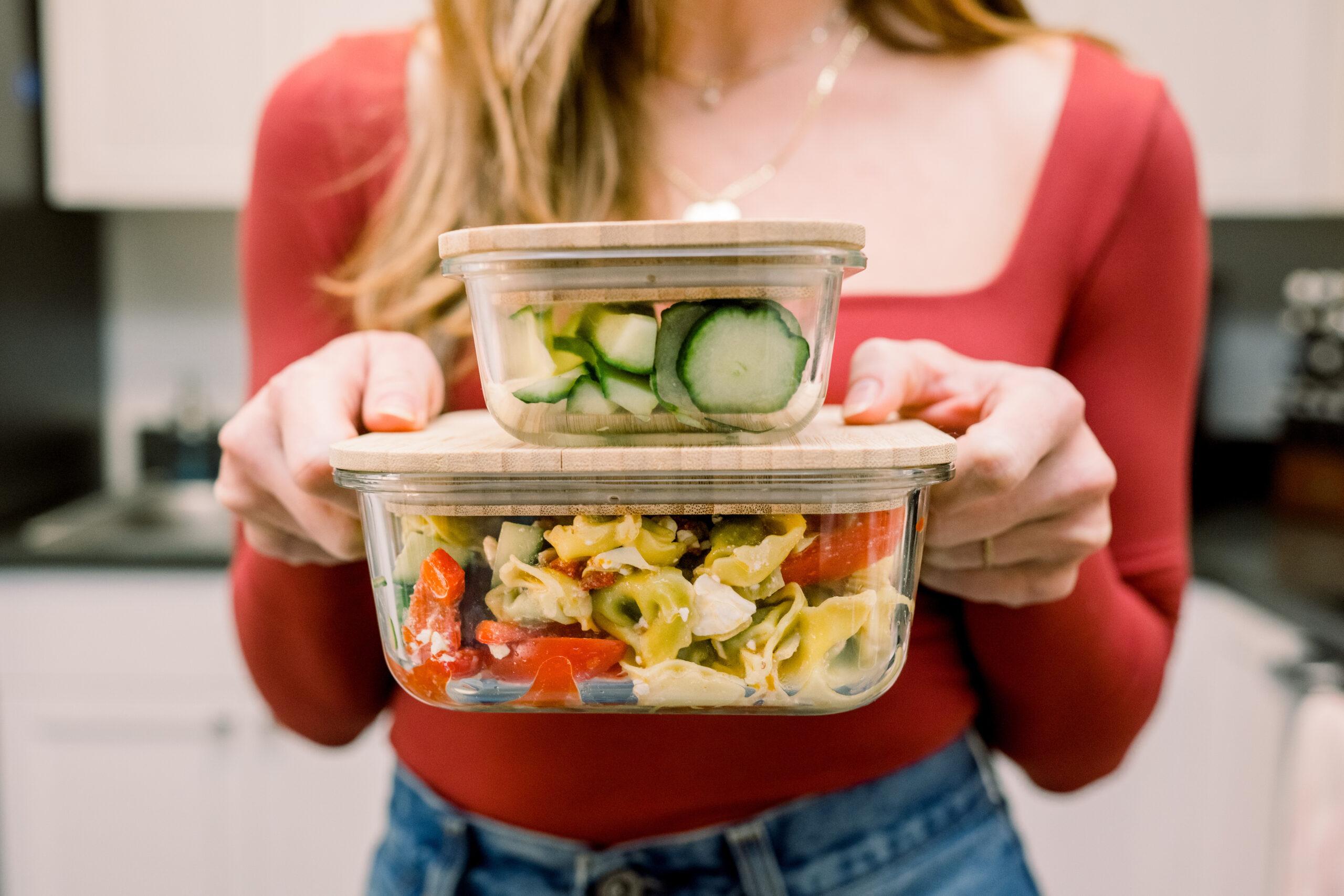As dietitians, two of the most common complaints we hear from patients are bloating and constipation. So we decided to expand upon our support for these patients by holding a webinar dedicated to gut health and gut health symptoms. Hosted by Culina Health RD Nahyeli Perpina, MS, RDN, CNSC, we broke down the basics on facing gut health challenges, especially around the holiday season. You can view the full webinar video here, or keep reading below for the recap!
Why are we talking about gut health symptoms around the holidays?
Oftentimes, people who experience GI issues find that their bloating and constipation symptoms worsen around the holidays. From erratic eating or changes in eating patterns due to travel or busier-than-usual schedules, to enhanced stress and stress-related eating, as well as the prevalence of richer and fattier foods traditional to many holiday celebrations, there are myriad reasons why your gut health symptoms may worsen during the holiday season. Our hope is that this blog post, and webinar, can arm you with information and tools to mitigate your symptoms, even when enjoying holiday celebrations and traditions.
What is bloating?
Bloating is a feeling of tightness, pressure, or fullness in your belly. It may or may not be accompanied by visible abdominal distension, and the resulting abdominal pain can range from mildly uncomfortable to severe. Between 10 to 25 percent of otherwise healthy people complain of occasional bloating, and around 50 percent of people that experience bloating also report a distended abdomen. Sometimes abdominal distension is as severe as needing different pant sizes to accommodate these periods of abdominal bloating.
What is constipation?
Constipation or chronic constipation occurs when you have less frequent bowel movements than is usual for your body, typically fewer than three bowel movements per week.
We know that bowel habit and regularity looks very different for everyone, so only you know what is normal for you, which is why an individualized approach to this type of symptom is very important. Constipation may consist of stool that is hard, dry, lumpy, and difficult or painful to pass. It can also present as a sensation of incomplete emptying of your bowels.
Common causes of bloating and constipation
There is a wide array of causes that can cause or aggravate bloating and constipation symptoms. Because of the widely multifactorial nature of GI symptoms, it is very important to approach them from a multidisciplinary lens to ensure that every foundational aspect of gut health is being addressed. A few common ones include:
Digestive causes of bloating and constipation
Inflammatory bowel disease, enzyme deficiencies, issues with GI motility, visceral hypersensitivity (such as irritable bowel syndrome), celiac disease, dysbiosis (an imbalance of gut bacteria), and more.
Lifestyle & nutrition causes of bloating and constipation
Overeating, eating too quickly, carbonated beverages, sedentary lifestyle, insufficient fiber intake, and drinking carbonated beverages can all exacerbate or cause these uncomfortable GI symptoms.
Furthermore, conditions like certain food sensitivities or intolerances, dehydration, or areophagia, which means that you swallow a lot of air when eating or drinking, can cause bloating and constipation.
Other reasons why someone may swallow a lot of air and become bloated or constipated could be using a CPAP machine, snoring or breathing through the mouth while sleeping, or nasal blockages due to allergies that cause someone to need to breathe through the mouth.
Hormonal causes of bloating and constipation
Certain hormonal fluctuations that can cause or aggravate bloating or constipation, like those that happen with thyroid issues during pregnancy, during menopause, and also those associated with endometriosis and pelvic floor dysfunctions.
Tips to help with bloating and constipation
Some tried and true ways to alleviate bloating and constipation are:
Nutrition-based tips
- Consume dietary fiber frequently and consistently
- Make sure you’re hydrated
- Avoid or minimize food triggers
- Avoid carbonated beverages
- Avoid skipping meals
- Eat slowly & chew thoroughly
- Minimize alcohol intake
Physical activity tips
- Walking after meals
- Yoga
- Stretches
- Cycling
- Core exercises
Lifestyle tips
- Physical activity
- Stress management
- Prioritize bowel habits
- Sleep quality
Supplements
- Fennel tea
- Peppermint oil
- Magnesium
- Psyllium
- Hydrolyzed Guar Gum
- Digestive enzymes
Other
- Abdominal self-massage
- OTC medications
- Address underlying medical conditions
Supporting gut health around the holidays
The holidays can be a chaotic time—full of travel, family gatherings, parties, and more. But your gut really loves structure and routine, so the key to preventing bloating and constipation and supporting your gut health during this time is to help you achieve that structure to the best of your ability.
Tip 1: Stick to your routine (where you can)
Prioritizing balance and consistency in hydration, sleep quality and quantity, balanced meals, and moving your body, can really help move the needle on preventing gut symptom flare-ups. Whether this is packing healthy snacks for a long travel day, sneaking out for a long walk outside while visiting family, or heading home early from a party to make sure you get your 8 hours, you can make small tweaks that ensure you don’t go totally out of your routine.
Tip 2: Hydration and fiber
If we can give you two nutrition-related tips to prioritize during this time for optimal gut support and digestive health, it’s staying hydrated, and keeping your fiber intake consistent. Having too much fiber one day and too little the next day sends mixed signals to your GI tract that can cause bloating and lead to bowel movement irregularities. Even if you’re getting slightly less fiber than is ideal, just keeping it consistent will more likely minimize your symptoms.
Tip 3: Understand your trigger foods
Do you know what foods trigger your abdominal bloating and constipation symptoms? Take note of what you’ve eaten when you experience a symptom to understand what’s most irritating to your body, but common GI irritants include caffeine, alcohol, spicy food, and high-fat foods. We’re not saying to never enjoy any of these again, but you can be mindful and strategic about when you indulge in these, so as to reduce your instances of bloating and constipation. If alcohol is a trigger food, but you enjoy a glass of wine at your holiday dinner, avoid alcohol in the days leading up, so you’ll be feeling good, then enjoy the emotional aspect of that drink when it counts.
Tip 4: Ask for help
When there are factors our of your control, acknowledge what you need, and ask for help. For example, if you cannot control what will be served for dinner, you can ask questions about certain ingredients or dishes, so you can know what you can and can’t eat and make a plan ahead of time. Maybe you can request ingredient substitutions if possible. If that’s not possible, maybe you can bring a dish that is safe for you to have during dinner.
Tip 5: Plan ahead
Proper planning can help you feel confident heading into holiday gatherings. Make sure you’re stocked with any over the counter medications or supplements that normally help you during a flare. Eat a nutrient-dense snack before a gathering if you’re worried about not having many options. Practice slow, intentional, mindful eating—you may even be able to tolerate some of your food triggers if you eat less of them at one time. And after the holidays, reflect, reset, and rebalance. Give yourself grace and flexibility.
Get additional support for GI symptoms
If you’re looking for more tailored support in investigating and alleviating your GI or IBS symptoms, get matched with a Culina Health dietitian today. We are in network with most major insurance providers and our diverse team of RDs works with patients nationwide.





